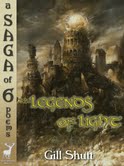My guest this week, Hope Clark, is the author of the
fabulous Carolina Slade Mystery Series. The first in the series is the award-winning Lowcountry Bribe. The second book, Tidewater Murder, comes out
in early 2013. In addition to penning her mystery series, Hope is the founder
of FundsforWriters.com, a career resource for freelance writers. This online
publication reaches over 35,000 readers each week and has been included in the
Writers’ Digest Magazine annual101 Best Websites for Writers, 2001-2012. Hope
graduated from Clemson University, in the field of agriculture, enabling her to
walk the walk of her protagonist, the illustrious Carolina Slade. www.chopeclark.com. Welcome to Book Blather, Hope.
I belong to a glorious critique group that’s
international in flavor. Members range from Australia to Sussex, England, from
Paris to Tucson, and Galveston to Canada. Several have been in the business
long enough to be almost brutal in their reviews of my work, which I adore
since it’s that brutality that’s enabled my fiction.
Dialogue is one of my strong suits, and
since my Carolina Slade Mystery Series is South Carolina-based, and rural in
setting, I have to clarify the occasional Southern witticism just like my UK
friend has to explain some of his country’s terminologies. In doing so,
however, I’ve learned that dialect and regional lingo must be carefully
scrutinized if you intend your book to sell outside of your home town.
“I awoke late on Saturday morning and
stretched, basking in the rays filtering through my yellow curtains, happier
than a dead pig in the sunshine.” The sentence was something along that line. I
say WAS, because it’s no longer in existence.
“Um, how can a dead pig be happy?”
“Ew, dead hogs. What’s that got to do
with feeling good?”
“Wouldn’t a dead pig stink?”
I kid you not. Those were actual
remarks from my reviewers, and I couldn’t get them to stop making cracks about
pigs! Now, to some of you, the remarks from my critiquers are off-the-wall
ridiculous. Everyone knows that a pig lying in the sun, fat and satisfied, is
at his happiest. Also, feeling extremely lazy and relaxed is equated to being
almost dead. At least it is in most of the Southeastern US. However, my Western
and Northern peers, not to mention my international friends, thought I’d lost
my mind. The debate on how, or whether, to use the phrase went on in jest for
days, totally removing the discussion away from the chapter at hand.
Most of us already know that when using
dialect, less is more. You do not write verbatim how dialect sounds or you risk
losing the reader’s interest as he bogs down in the commas, apostrophes, and
abbreviated words. Apply that same logic to witticisms. Temper them so they are
part of the storytelling, not the noise in the midst of it.
Admittedly, I’m a fan of metaphors and
catch phrases. They’re colorful, and when used strategically, they paint a
character prettier than a basket full of Easter eggs. “He couldn’t pour water
out of a bucket with the instructions on the bottom” tells you as much about
the speaker as it does the character being referenced. So much accomplished in
so few words . . . words that are memorable to the reader.
Displaying characters in such a verbal snap is
so much more fun than two paragraphs of clothing description and hair color.
The sweethearts and good old boys, the intellects and the dunces, the wicked
and the kind become all too clear when we use distinctive wording like “You’re
gooder than grits” or “Bless your heart” or “I’m gonna smear you like peanut
butter.”
However, falling in love with your phrasing can
lead to a bit of overdoing and a sense of the overdramatic. Splash that with
regional naiveté, and you might lose some readers who just don’t get it.
Enjoy a spicy vocabulary and flex that dialogue,
but make sure that when your reader reaches the chapter about dead pigs that
it’s about barbecue, so nobody gets confused.

.jpg)








